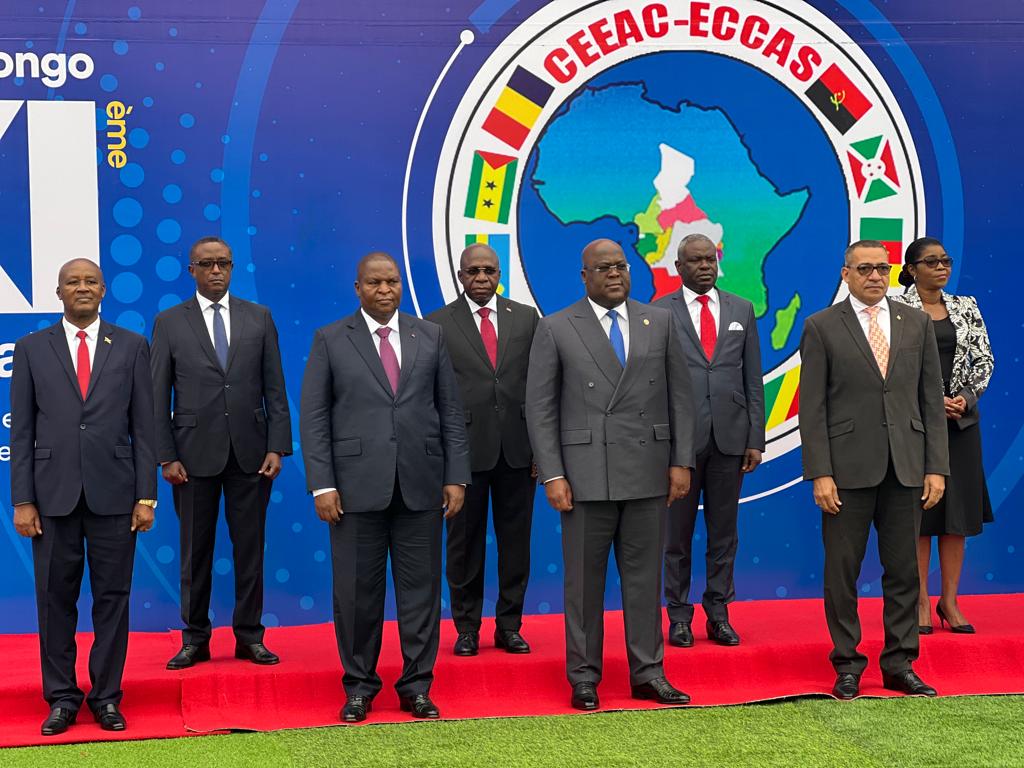### Oxygen for peace: ECCEAs at the heart of a humanitarian and security crisis in Central Africa
On February 7, the heads of state and governments of the Economic Community of Central African States (ECCS) gathered in Malabo, on the island of Bioko in Equatorial Guinea, within the framework of the Peace of the Peace and security. This event, although planned, takes a particular resonance in the current context, while the offensives of the rebel group M23, presumed supported by the Rwandan army, plunge the Democratic Republic of Congo (DRC) in a spiral of violence.
At the heart of this meeting, the leaders of the ECEAC have emphasized the immediate withdrawal of the Rwandan forces of the Congolese territory, a requirement which only translates the exasperation of an international community often silent in the face of the violations of national sovereignties . While peace roads are dotted with pitfalls, the need for constructive dialogue, instead of growing armament, is increasingly pressing.
#### A persistent crisis and a call for action
The current situation in the provinces of North Kivu and South Kivu is not new. For decades, this region has been the scene of clashes between various armed groups, exacerbating a humanitarian crisis which engages not only of neighboring states, but also of the international community. With an alarming figure of more than 5 million people displaced inside the country and often hampered humanitarian access, the pain of the Congolese intensifies every day.
The leaders of the ECEC have, in a joint declaration, insisted on the need to normalize the operation of Goma airport. This step seems as symbolic as pragmatic; The reopening of the entry and exit routes could facilitate essential regional verification mechanisms. The previous initiatives such as the reinforced extended verification mechanism (MVA) and the International Conference on the Great Lakes Region (CIRGL) are trying to provide long -term solutions. However, their successes inevitably go through the adhesion of the parties involved.
### The crucial role of peace processes
Heads of state have reaffirmed their support for diplomatic initiatives such as the processes of Luanda and Nairobi, while calling the DRC and Rwanda to respect their commitments. Such an approach seems more than urgent, because the creation of a quadripartite summit, integrating SADC and EAC under the aegis of the African Union, could offer an essential platform for a constructive dialogue.
In 2023, armed conflicts in Central Africa cost billions of dollars in economic losses, affecting not only the countries concerned, but also the regional economy. Indeed, according to data from the World Bank, conflicts in the DRC led to a reduction of approximately 3% of national GDP in 2022. Concerted efforts to promote peace could not only stop this economic hemorrhage but also cause a favorable climate development.
#### An unprecedented humanitarian crisis
Beyond the security issues, only a real secure humanitarian corridor can allow a rapid response to the humanitarian crisis in eastern DRC. The figures are overwhelming: the United Nations estimate that around 26 million people are in need of urgent humanitarian aid in the DRC. The implementation of food assistance and medical care programs is a moral and ethical imperative that the regional community must note.
It is also imperative to take a critical look at the dynamics of humanitarian aid. Too often, assistance is perceived under the prism of a simple transfer of resources, neglecting the vitality of responses adapted to local contexts. This requires a direct commitment from ECEAC member countries to stimulate local initiatives that meet the specific needs of affected populations, while taking into account cultural variability and community diversities.
#### Conclusion: a shared commitment for peace
The Malabo meeting, although marked by an observation of distress, must be perceived as an opportunity. It is a call for a collective reflection on how to transform peace initiatives into sustainable realities. Beyond the speeches, it is time to act with firmness and determination. Peace is not a simpleilateral, but a shared commitment which requires the cooperation of all.
Central Africa is at a decisive crossroads. If history has taught us something, it is because the resolution of conflicts in this region cannot be done without a strong political will, the mobilization of local resources and infallible support from the member countries of ECEAC. The unanimous voice of leaders is a message of solidarity and responsibility. Peace in Central Africa is everyone’s business, and the time to act is now.

